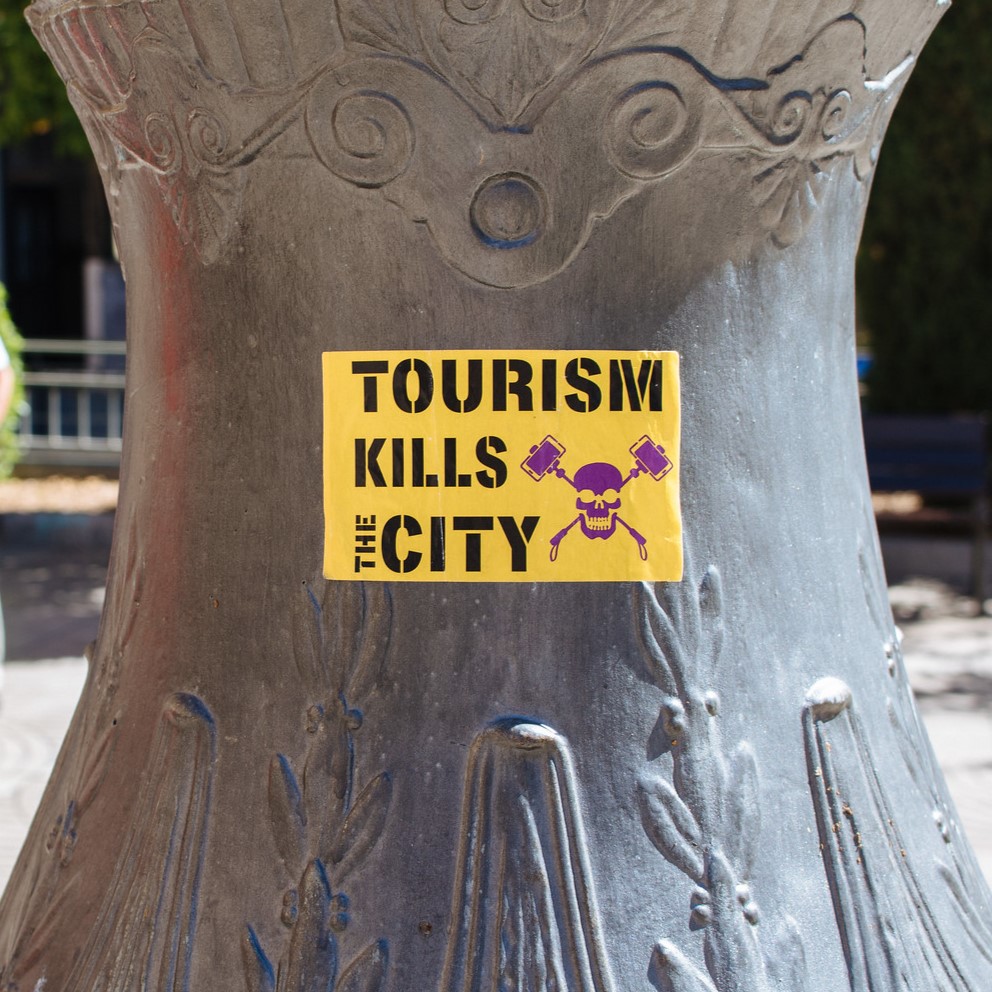Published:
A wave of anti-tourism protests has hit Europe as residents in popular destinations push back against the overwhelming influx of visitors, with demonstrations flaring in the Netherlands, Greece, Italy, Portugal, and notably Spain.
In early July, protestors in Barcelona took to the streets of popular tourist spots to douse unsuspecting visitors with water pistols while chanting, “tourists go home.” Before that, in April, locals in the Spanish Canary Islands initiated a hunger strike to protest against the overwhelming tourism, which they claimed is driving up living costs for residents and causing environmental harm. And most recently, in late July, around 50,000 people gathered on the Spanish islands of Mallorca, arguing that the island’s tourism model “impoverishes workers while enriching only a few.”
These protests stem from the wave of post-pandemic travelers who are flocking to Europe for “revenge tourism,” or embarking on the trips they missed because of COVID-19. In 2023, the number of nights spent in EU tourist accommodations reached 2.9 billion, a 6.1% and 1.4% increase compared to 2022 and 2019, respectively. According to the European Travel Commission, forecasts indicate travelers will spend 742.8 billion euros in Europe in 2024, a 14.3% increase from 2023.
At the heart of the anti-tourism movement is the escalating problem of rising rent and property prices, making homeownership increasingly unattainable for residents. Protestors argue that over-tourism inflates housing costs, speeds up gentrification, and exacerbates already limited water supplies. In drought-affected cities like Barcelona, tourists consume significantly more water than the average resident; regions in Sicily have even turned away tourists due to severe water shortages.
Over the past decade, housing costs have also surged by nearly 70 percent, fueled by platforms like Airbnb. Despite the fact that around 150,000 people work in tourism in Barcelona, many cannot afford to live there. Similar issues plague other popular destinations like Lisbon, Athens, Las Palmas, and Ibiza. These cities, while benefiting from tourism revenue, are increasingly concerned about losing their working-class residents, local grocery stores, and cultural identity.
Anti-tourism has additionally affected cruises, which are an integral part of travel to coastal cities in southern Europe. The Cruise Lines International Association issued a warning that cruise lines may have to reroute their itineraries to miss some of the top destinations in Europe to protect passengers from protestors. With restrictions for cruises already being placed in Barcelona and Venice— resulting in the withdrawal of major cruise line Norwegian— other destinations at risk include Norway, France, and Greece, where cruise lines such as Royal Caribbean and Celestyal generate significant revenue.
In response to these issues, many countries are taking steps to mitigate the damages of overtourism, such as cracking down on short-term rentals. On June 21, the Barcelona mayor announced plans to ban all short-term rentals in the city beginning in November of 2028. The decision will see the return of nearly 10,000 apartments currently listed as short-term rentals on Airbnb, as well as other platforms of the housing market. Similarly, in 2023, New York City made it illegal to rent out an apartment in the short term unless the tenant is registered with the city, and Berlin banned short-term rentals altogether in 2014.
On the other hand, some governments are hesitant to implement other long-term measures. For many EU countries, tourism is a crucial economic pillar, contributing 11.3 percent to Croatia's GDP and between 6 and 8 percent for Portugal, Greece, Spain, and Italy, according to an analysis by Allianz. In an interview with CNN, Europe Travel Commission CEO Eduardo Santander said the anti-tourism incidents like the protests in Barcelona are “isolated” and do not “reflect the complete reality of Spain or Europe.”
Regardless, the rise of anti-tourism protests across Europe highlights the urgent need to balance the economic benefits of tourism with the preservation of local communities and environments.
File under






